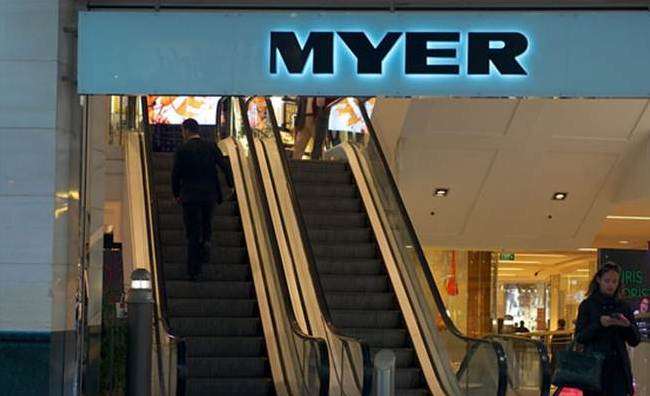Is a CEO with a background in technology and supply chain the key to driving disruption from the top down in a retail setting? Myer hopes so.
The retail giant surprised many this week when it revealed Bernie Brooks would immediately step down as CEO and managing director, replaced by CIO and supply chain officer, Richard Umbers.
The company couched the CEO change in no uncertain terms: they wanted someone to oversee a complex, multi-year transformation project that would reshape Myer "for a profitable, sustainable future".
"It has become clear that to thrive in a modern retail environment, Myer must adapt more quickly and be closer to its customers," chairman Paul McClintock AO said.
"A transformation project of the scale required to achieve the Board's vision will take a number of years to implement.
"The Board and management team have agreed that the transformation work has reached a pivotal point and it is appropriate for a new CEO to be given the opportunity to own, lead and drive the transformation program over the coming years."
Exactly what the transformation will entail is unclear, but its design is rooted in in-depth data analysis and customer research. Umbers is expected to develop a more detailed path to transformation as he settles into the CEO role.
In moving from CIO to CEO, Umbers is treading a succession path that is relatively uncommon. The question is: Will his background give Myer an edge as it seeks to disrupt itself?
Deloitte Consulting partner Steven Hallam thinks so.
"I think it's natural that you would see digital skills becoming more relevant at the C-Level," Hallam told Information Age.
"Most executives and boards are really demanding digital skills. Digital is part of the core now and is shaping business as a whole."
Until now, Myer has been disrupting itself in pockets. The retailer started experimenting with supply chain systems that could enable dropshipping in 2013; it has also been trialling iPads on store floors and in-store 'hubs' to make it easier for shoppers to interact with Myer.
For this reason, the shift to an overarching transformation strategy will be keenly watched by industry observers.
Long overdue
In a 2012 report, Deloitte predicted the retail trade was on a "short fuse" when it came to digital disruption.
"Companies that stood to experience significant digital disruption within the next three years [were] said to be on a 'short fuse'," Deloitte said. (pdf)
With those three years now largely passed, the urgency for retailers that have not yet embraced digital disruption should – in theory - be significantly heightened.
However, analyst firm Forrester Research reported late last year that "almost two-thirds of retail execs ... do not see digital as a critical driver of business strategy – a shocking figure in the age of the customer."
"This lack of understanding of the importance of digital in retail will become a major problem for retailers as they try to integrate their online and offline channels into an omnichannel customer experience," Forrester said in its Digital Leadership in Retail 2014 report.
The firm said only seven percent of retail executives saw digital "as the most important driver of business strategy."
A Forrester spokesperson was unavailable to provide further comment to Information Age.
PwC's Retailing 2015 report reinforces the direction Myer is taking to reshape itself, particularly the emphasis being placed on customer behaviour and data analytics.
"Understanding shoppers will be more critical than ever in 2015," PwC said. (pdf)
"Given the anticipated growth of niche retailing, the diffusion of media and markets and the increasing reliance on point of sale as point of communication, shopper insights captured in the retail environment will be key to driving sales.
"Retailers will need to understand what motivates the shopper at the point of sale."










